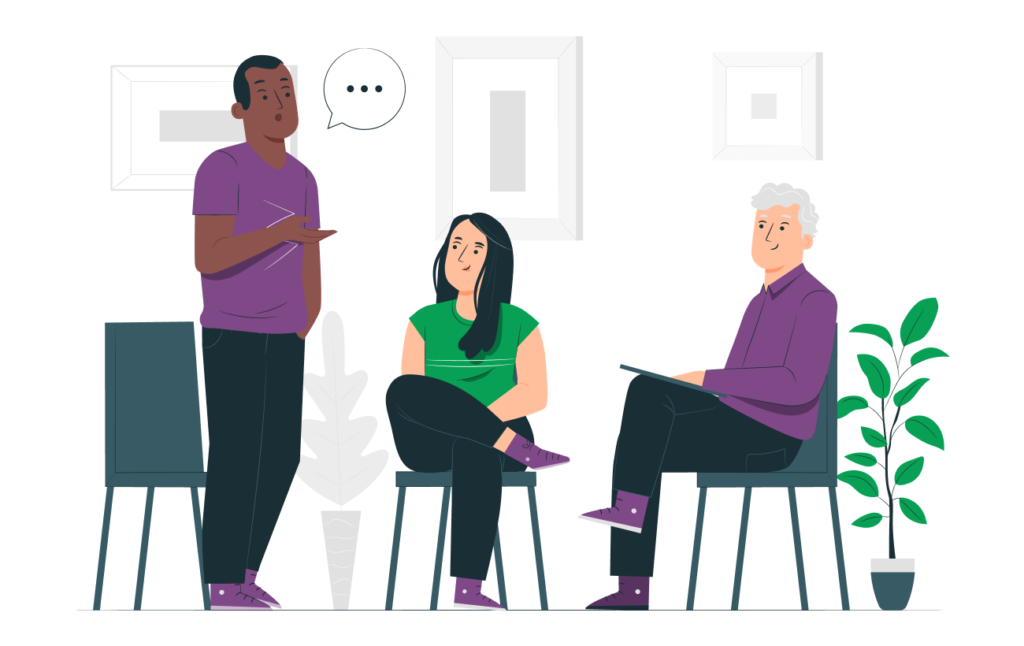5 reasons why inclusivity in mental health is so important

Within society, you have probably heard the terms inclusivity and diversity used more frequently, and for very good reason. Respecting the culture, ethnicity, values, ability, and religious beliefs of different groups of people benefits everyone as individuals and as members of society. This is particularly true when it comes to your physical health, mental health, and wellness.
What do diversity and inclusivity mean?

Diversity and inclusivity reference the same concept: acceptance and respect of everyone, regardless of age, skin color, physical ability, sexual orientation, religion, and gender identification. However, the terms are distinctly different. Diversity refers to a group of people with a wide range of demographic, political, philosophical, religious, and ethnic differences.
Diversity can be thought of as the “what.” Inclusion can be thought of as the action or the “how.” Inclusion refers to the action steps taken to intentionally include people of different backgrounds, ethnicities, demographics, abilities, and religious beliefs. You can think of it as including people regardless of where they come from, their physical abilities, how they identify, and what they believe while respecting and accepting them as human beings.
Why diversity and inclusivity in mental health care are so important
- They allow you access to essential healthcare services like therapy and medication by having therapists and doctors available from various backgrounds and demographics.
- They encourage effective problem-solving efforts. This can mean more effective and efficient services for you and an overall better therapeutic experience.
- They provide you with options. Having options can help you feel empowered to make your own decisions about your healthcare.
- They improve employee morale. Feeling respected, accepted, and included can increase motivation and improve productivity at work. This can, in turn, improve motivation and morale, which can translate into effective therapy and patient care for you.
- They facilitate increased trust in the therapy room. When you feel respected, heard, and valued by your therapist, you are more willing to open up and be honest. Having a positive rapport with your therapist can help you reach your therapeutic goals.
What do diversity and inclusivity look like in therapy?

Talking to a professional counselor, psychologist, or therapist can be one of the most rewarding experiences of your life. Your mind and body connection is an important part of your overall health. Incorporating diversity and inclusivity in therapy is important for effective therapy. Honoring diversity and inclusivity, as a therapist, can look as follows:
- A willingness to learn about cultures, ethnicities, religions, and demographics that are different from their own.
- Eliminating judgments, stereotypes, and bias through education and professional development.
- Attending continued learning courses about inequality and social injustices that groups of people experience.
This can have a direct impact on your experience as a patient. If a therapist is nonjudgmental, doesn’t support stereotypes, and has professional education in diversity, you benefit. You may feel accepted, included, and feel more comfortable expressing yourself genuinely in therapy.
As a patient, it is of the utmost importance that you feel accepted and empowered along your therapeutic journey. Being able to choose your therapist based on your specific needs and background is important.
How can you tell if your therapist is committed to inclusive care?
Having a therapist who is committed to providing inclusive care can be the key element for an effective and successful therapeutic experience. An inclusive therapist will:
- Ask about your background, ethnicity, religious beliefs, and values that are important to you.
- Build upon your strengths and appreciate your beliefs.
- Engage in healthy verbal and non-verbal communication with you such as making eye contact and asking follow-up questions to clarify something you have said.
- Show openness to receiving feedback from you to help improve communication and develop trust. They will ask you if there is anything they can do differently to make you feel more comfortable.
- Inquire and respect your pronouns.
The experience of bias, racism, and prejudice can negatively impact your mental health. In addition, fear of experiencing bias, prejudice, and being misunderstood is a barrier to getting mental healthcare for a lot of people.

If you are experiencing symptoms of depression and anxiety or perhaps your are searching for support along your personal journey, help is available. CDPHP partners with Valera Health to provide comprehensive tele-mental health care that includes therapy and psychiatry services that are focused on you and your unique needs.
Content provided by Valera Health
 The Daily Dose
The Daily Dose
Comments are closed.